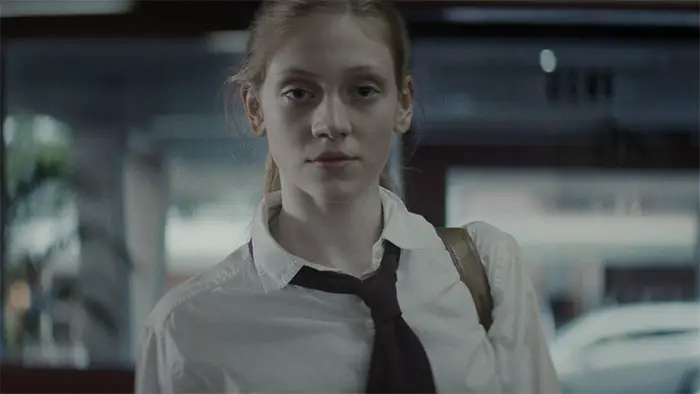
WE ARE ONE: A GLOBAL FILM FESTIVAL REVIEW! Carlos (Juan Carlos Aduviri) is a security guard in an apartment building. His job is simple, monitor who walks in and out of the complex, greet the residents as they come home from whatever they may have been involved in, and ultimately keep the building safe. However, Carlos has become an outlet for the residents and often finds himself on the receiving end of a number of grievances that are completely unrelated to him or his job. Electric Swan finds Carlos among the many residents at a time when it appears that their lives are falling apart. One day the apartment building begins to shake, and the residents become nauseous and afraid of what this might mean for their homes and their lives. More than ever, Carlos must help to protect the people in his life and ensure that their livelihoods are kept in order after the seemingly horrific events.
The world appears to slowly be falling apart. Everything that we believed (or hoped) to be true is being ripped apart at the seams. This is also true of the residents of an apartment building on Avenida Libertador 2050. One of the young tenants, Juana (Nikita Zuckerberg), makes clear the class system that lives within the walls of the apartment building. Those on the upper floors have more money, and the lower someone lives in the building, the more they struggle with money and survival. The apartment building very much represents the world in which we live, where classes are clearly separated, and each class possesses a different but relevant fear.

“When the building shakes, audiences will quickly understand its significance and the role that it plays in the classes’ fears and understandings…”
When the building shakes, audiences will quickly understand its significance and the role that it plays in the classes’ fears and understandings of the world. Those on the upper floors are afraid that the building shaking signifies that they will one day fall to the ground floor in a swift and violent fashion. Those that live on the lower floors (who have dealt with a leaky building for some time) are afraid that the rocky building is a sign that they will one day drown. These fears (and realities) are far-reaching, and they extend outside the walls of the apartment building. These characters–including the old, disgruntled Madame Capdepont (Nelly Prince), the previously mentioned Juana and the young, vibrant ballerina, Catalina (Elisa Massino)—represent everyone both inside and outside of the apartments in which they reside.
Electric Swan is an allegory about the distress that money and life cause and the fear that it instills in people with it and without it. Writer-director Konstantina Kotzamani uses such simple tactics to reach audiences around the world and explain to them the difficulties of the lives they lead. It is incredibly relevant, especially when the world appears to be in shambles at the present moment. Fear is very much a real part of everyday life in 2020. Whether it is COVID-19, politics, or rioting, people around the world legitimately have things to fear. While one building is minute in comparison to the entire world, it so perfectly depicts the stress that even the tiniest change (or shiver) causes and how each class and each group of people absorb what is happening. Kotzamani picks the ideal time to present audiences with a story with this much depth. She reaches the right audiences, and she tells the right story, leading to Electric Swan being a success. Free up forty minutes of your time and experience the beauty that is Kotzamani’s Electric Swan.
Electric Swan screened at the 2020 We Are One: A Global Film Festival.

"…an allegory about the distress that money and life cause and the fear that it instills in people..."

